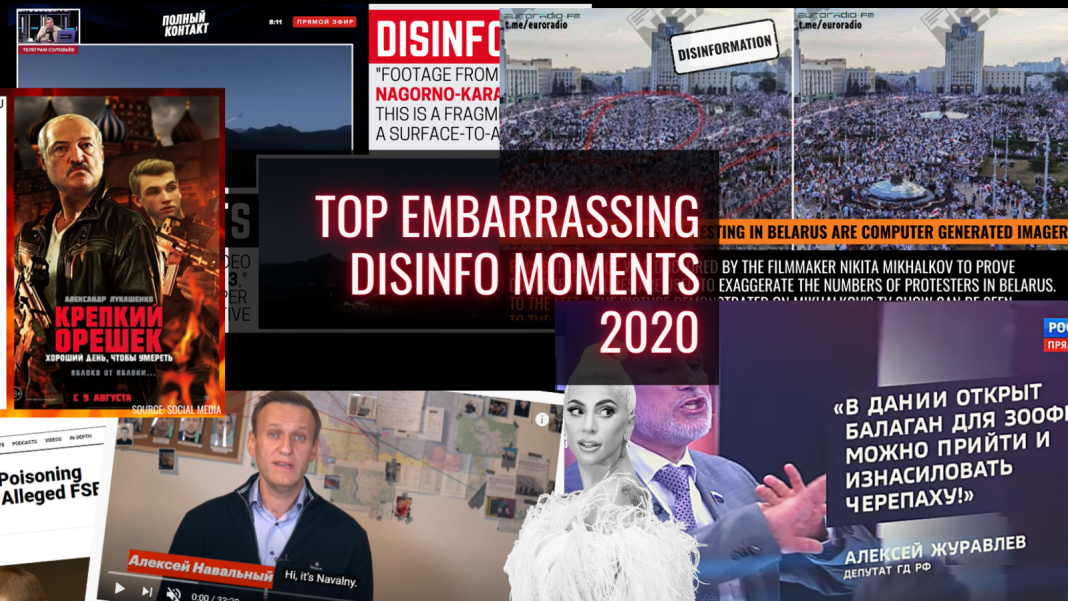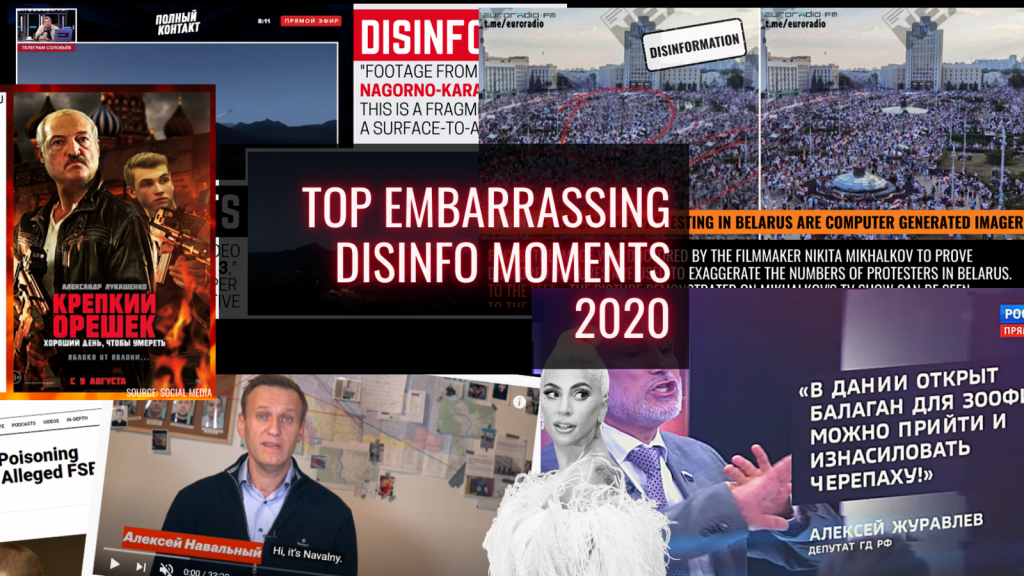
Democracy is critical by its nature. Dissent, questioning and debate are core elements of the public discourse in a democratic society. Any statement, idea, suggestion is, and should be, challenged, tested, verified, scrutinised by us, citizens. Disinformation functions as poison to the democratic system. Lies are injected to the democratic dialogue, scaring, and confusing; creating discontent.
This time of the year, we traditionally sum up the past year with a collection of clumsy mistakes from the pro-Kremlin disinformation outlets.
1. A Polite Poisoner
The Navalny Case is, of course, a major embarrassment for the Russian state. Not the attack, of course; the Kremlin would not blink before deciding to take radical measures, but the fact that the State’s assassins fail, leave evidence and demonstrate an apparent lack of professionalism. In December, Alexei Navalny, called one of the FSB officers involved in the attack on him, pretending to be a superior officer. The FSB-officer disregarded all possible means of security and politely attempted to please the pretend boss, confessing to the crime and sharing details on how the assassination was planned, performed – and failed. This way, the FSB officer not only corroborated the evidence on Russian state services’ attack on Navalny; his readiness to sing before an unfamiliar superior officer also displayed the traditions of blind servility and condescension in Russian state structures.
2. The Vile Vaccine
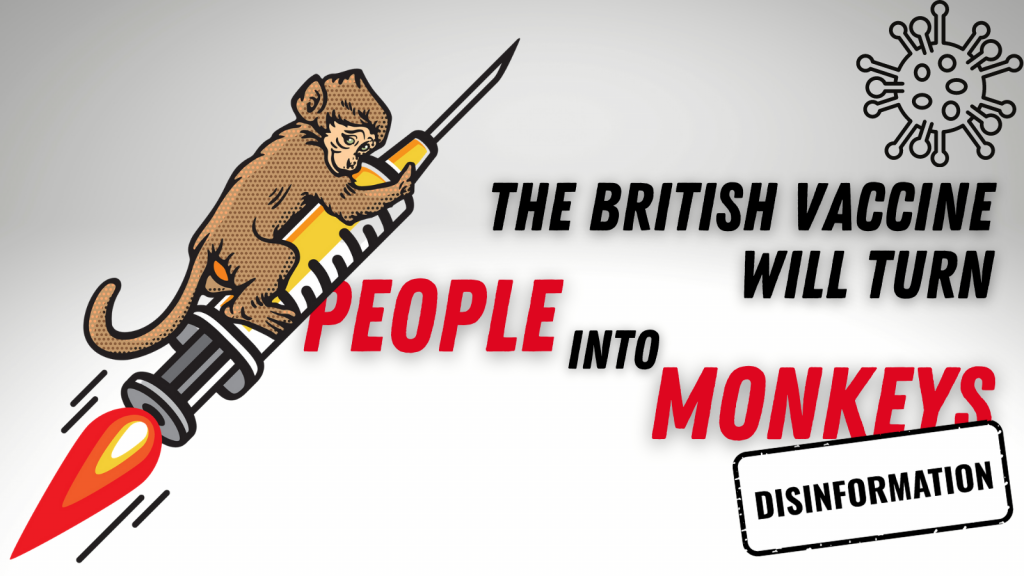
COVID-19 has dominated world news the whole year, just as it has dominated in the flow of disinformation. EUvsDisinfo has since January 2020 detected more than 700 cases of disinformation on the pandemic, but the cases on vaccine stand out as particularly awkward. At the early stages of the pandemic, pro-Kremlin media catered to anti-vaxxers and conspirologists, only to make a 180-turn into a marketing campaign for the Russian vaccine Sputnik V. The competition was ridiculed as “monkey vaccines” until the British-Swedish AstraZeneca invited to a cooperation on combining the vaccines. No more words on monkeys since then.
3. A Filmmaker, Forging Fakes
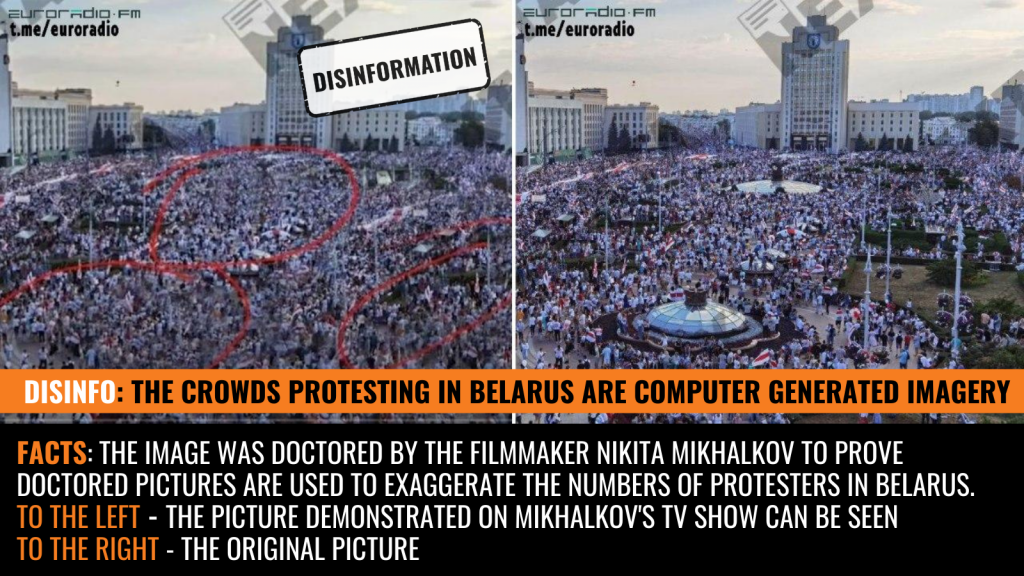
Oscar-Winner film-director Nikita Mikhalkov wanted to show how pictures form the massive demonstrations against Alyaksandr Lukashenka in Belarus merely were computer-generated imagery. So his TV show had some pictured doctored themselves and broadcast them as proof of fake.
4. A Weird Wiretap
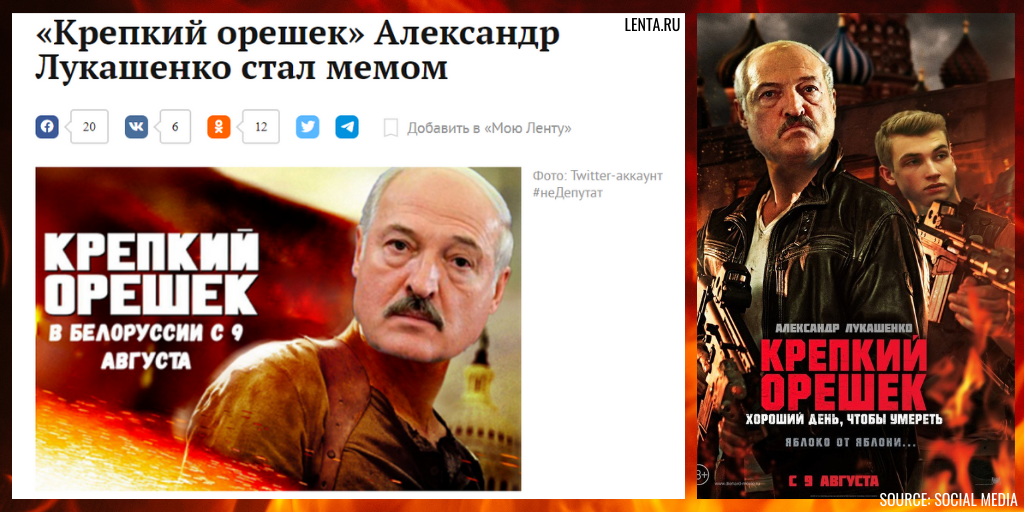
The world could hardly stop laughing at Alyaksandr Lukashenko, the illegitimate President of Belarus, when he shared a coarsely forged taped intercept of a conversation, allegedly between German and Polish intelligence operatives, scheming on regime change in Belarus and complaining about Lukashenko being a “hard nut to crack”.
5. An Imaginative Imagery

Vladimir Solovyov is one of Russia’s leading profiles in disinformation proliferation. In a TV-show he demonstrated imagery, allegedly from fighting in Nagorno-Karabakh, but actually from a video game, Arma3. The game, released 7 years ago, must really be a big hit in the Kremlin, as it was used already in 2018 by the Russian Ministry of Defence as actual footage from Syria.
6. A Sensationalist Semiotics
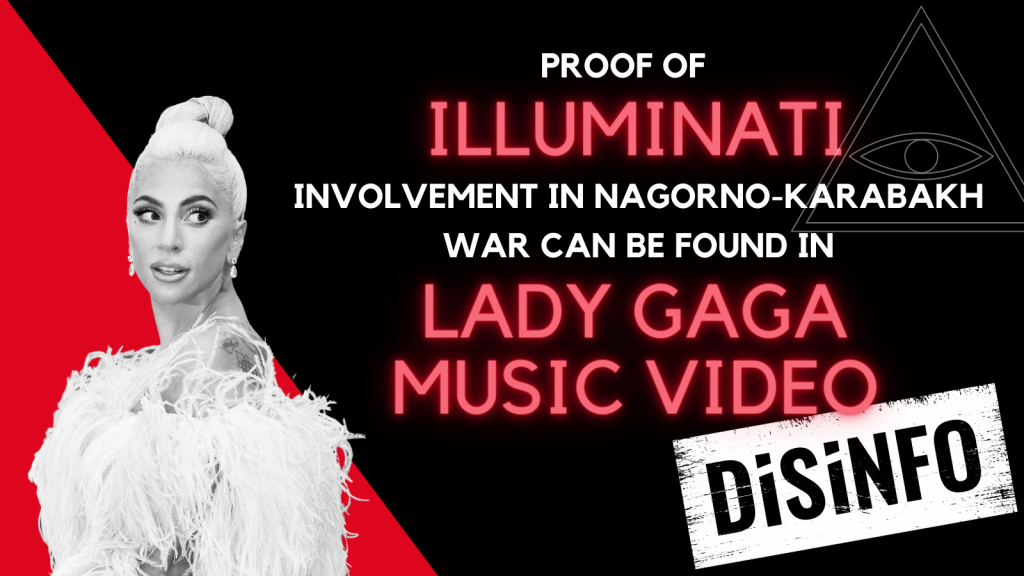
An Armenian pro-Kremlin disinformation outlet falls into a delirium of divination, finding “proof” for an involvement by the “Illuminati” in the Nagorno-Karabakh war in a Lady Gaga video. This approach; an über-detailed analysis of “signs” is regularly used not only by small outlets in Armenia, but also by Russia’s largest daily, the Komsomolskaya Pravda, annually searching for “predictions” on the cover of The Economist.
7. A Duma Dump
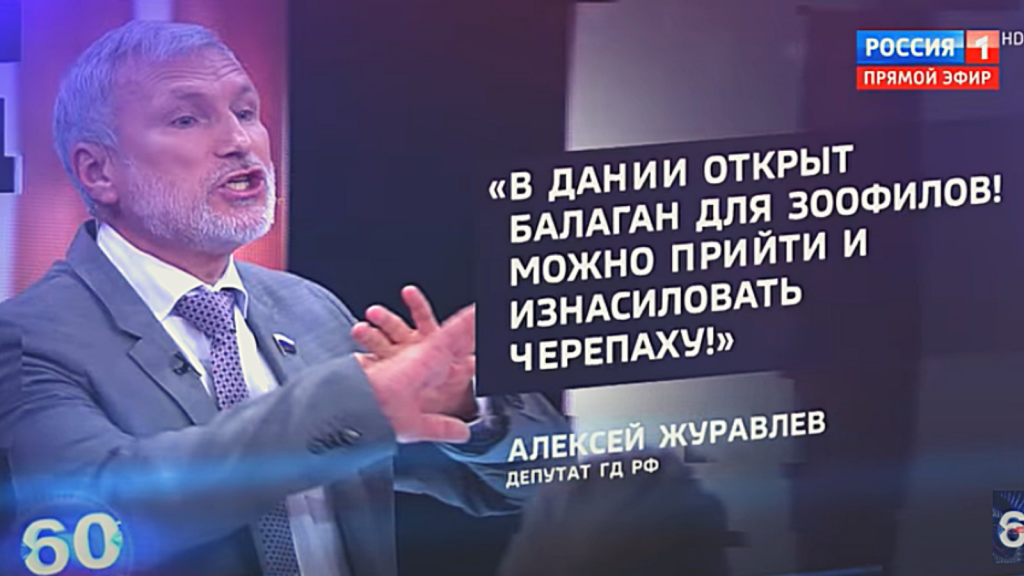
A few high-profiled members of the Russian parliament, the Duma, have, historically, been reliable producers of disinformation, valiantly following the Bullshit Paradigm and carefully occupying the information space. We have witnessed Russian lawmakers present lies like “Danish Bordellos for Zoophiles” and “US Attacks Russia with Climate Weapons”.
8. A Zipped down Zoom
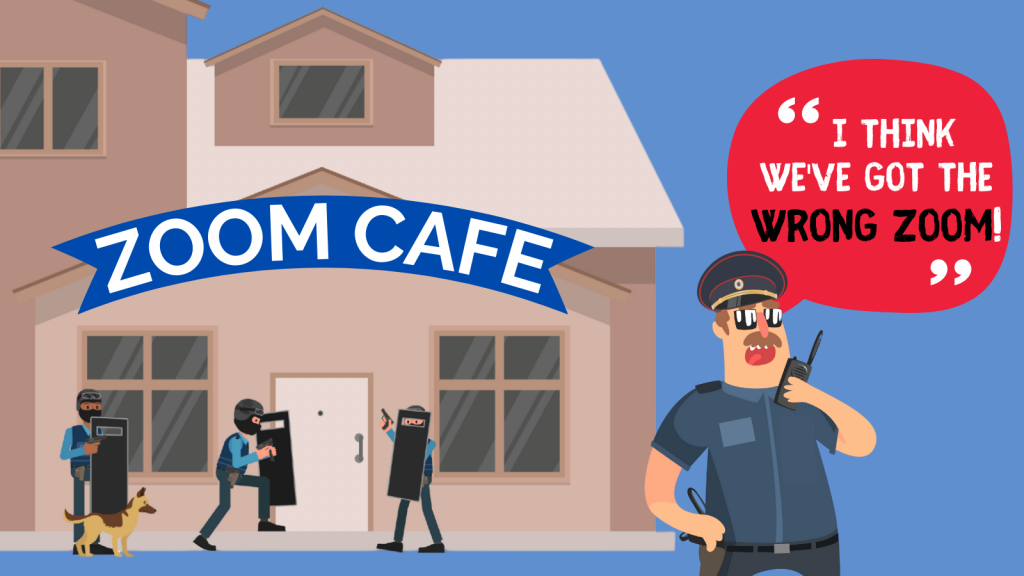
Disinformation is part of a general ambition to take control of the information space. If lying is not enough, next step is to silence the participants of a public discourse or close down the media or even the space, where information is shared. This last method was demonstrated in November 2020, when St. Petersburg police raided and closed a café for violation of sanitary rules. The proprietor of the establishment, Café Zoom, is convinced the authorities actually wanted to close down an LGBTI-festival, held online on the Zoom video conference platform.
9. A Plethora of Prevarication
EUvsDisinfo observed a sad jubilee in November 2020 as we added the 10 000th case to our database. 10 000 cases of disinformation – false statements, intended to harm. 10 000 cases, intended to deceive, distort and create discontent. Around 700 cases of disinformation on the coronavirus – all with the intent of scaring the audience, sowing doubt in the actions taken by national governments, international organisations and health officials. Disinformation can kill.
A Deficiency of Decency
The headline of this annual review suggests the mistakes could be “embarrassing”. We might laugh at the coarse, transparent lies until we remember that Alyaksandr Lukashenko is a brutal dictator, cracking down on peaceful protesters with excessive violence. We might snicker at the primitive ideas on “puppet masters” until we see the anti-Semitism and homophobia behind them. We giggle on the memes about FSB, poisoning Alexei Navalny’s underwear, until we remember that it was a large-scale, ambitious and thoroughly planned assassination attempt, failed only because of the professionalism of the pilots on Navalny’s flight, deciding to perform an emergency landing and the medical staff in Omsk, identifying the symptoms of poisoning and administrating the correct treatment.
The most embarrassing part of the mistakes, mentioned above, is the lack of remorse. Members of the Russian Parliament are not ashamed of repeating old lies if they believe they can earn something from it. The Kremlin’s “journalists” see no point in correcting mistakes; neither Mikhalkov, nor Solovyov had the decency to apologise for deceiving their audiences. An illegitimate head of state illegitimately forges evidence without hesitating and use State-controlled media for this. Representatives of the Russian state proudly suggests that Russia certainly kills people, just don’t fail.
Embarrassment suggests the existence of morals and principles. Lies, forgeries and bullshit are parts of a fierce attack on democracy.


